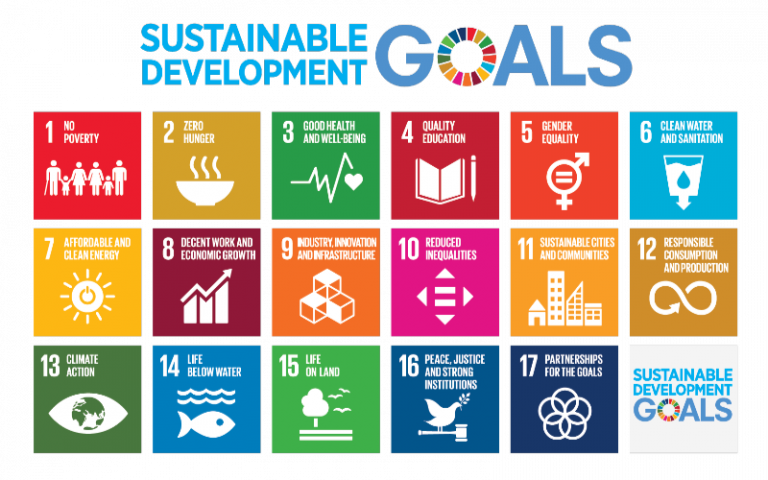Ensuring research is effectively at the heart of achieving the UN’s Sustainable Development Goals
26 July 2019
Professor Joanna Chataway, Head of Department for UCL STEaPP, is co-leading a study to identify the contribution of science, technology and innovation in meeting the United Nations Sustainable Development Goals (SDGs).

The project, which has been commissioned by UK Research and Innovation (UKRI), will bring together a consortium of seven leading universities, research centres and the United Nations Development Programme (UNDP) to work together to better understand the ways in which science, technology and innovation contribute to meeting the SDGs in low and middle-income countries.
The 17 SDGs, commonly referred to as the Global Goals, were adopted by 193 United Nations Member states in 2015. They address a wide range of complex, interlinked and pressing issues, including extreme poverty, education for all, gender equality, climate change and health and wellbeing. Research and innovation are a vital component in helping to achieve the Global Goals. However, there is a need to better understand how research can be used to the greatest effect and to achieve maximum benefit.
Speaking about the new project, Professor Andrew Thompson, UKRI Executive Champion for International, said: “Research has a crucial role to play in creating a safer, healthier, fairer and more sustainable planet for all, but research is also vital in providing the evidence for how and where it can best accelerate progress towards achieving the Global Goals. This exciting multidisciplinary project will do just that, shedding light on what works well and what could work better, ensuring research is being fully utilised to drive solutions to some of the world’s most intractable challenges.
“Among these intractable global challenges is that of restoring a greater sense of human dignity to the drive to reduce world poverty and improve the lives of the poorest. The SDGs aim to do precisely that - reconnecting development to fundamental questions of human rights, peace and security. It’s vital therefore to think about the Goals collectively and what cutting-edge research can do to achieve the 2030 agenda by reconnecting society to the economy, and society and economy to the environment. The need for integrated solutions, drawing from across the whole knowledge base, has never been greater.”
To help steer global efforts towards achieving the Global Goals, this project will develop an integrative framework to map the complex relations between research in science, technology and innovation on the one hand, and the SDGs on the other. It will consider the synergies, competing priorities, trade-offs, and the main actors at local, national and global levels.
Dr Pedro Conceição, UNDP’s Director of the Human Development Report Office said: “We already have much of the research, science and technology needed to solve today’s global challenges, but often research and policy making work in parallel rather than together. We need to link policy makers, civil society and the research and innovation communities so the research and innovation communities can frame their agendas around concrete challenges faced by policy makers, and policy makers and civil society can use the evidence generated from these activities to help their communities tackle today’s global challenges.
“Today’s development challenges cannot be dealt with in isolation. They are linked and interdependent, meaning that the way we work and the solutions we develop must be integrated. This new project will help us understand how and where research can and is being used to accelerate progress to ending poverty of all kinds and protect the planet for future generations.”
Professor Andrew Stirling from the University of Sussex’s Science Policy Research Unit, who along with Dr Tommaso Ciarli from the University of Sussex, and Professor Joanna Chataway from UCL STEaPP, is leading the study, adds: “This exciting project addresses an issue that has remained remarkably neglected up to now. With many alternative possible innovation pathways engaging each individual goal, and all their many overlaps, the most important questions are not about ‘how fast?’ to progress, but ‘which way?’ This project will map the balance of resources and activity around contending pathways in different sectors to raise healthy question over those pathways that are currently most powerfully-backed. It aims instead to help inform more deliberative, rigorous and accountable steering of directions for innovation.”
A full report will be published at the end of this 24-month project including a map of how different areas of research in science, technology and innovation relate, positively or negatively, to the different Global Goals.
 Close
Close

